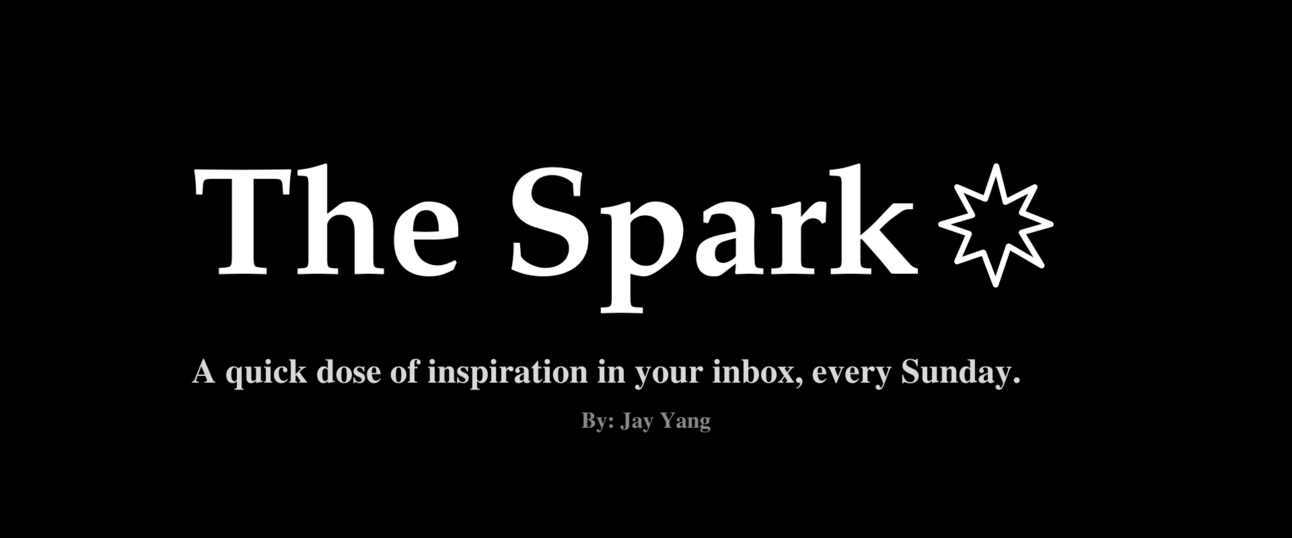
3 Thoughts
I.
You can tell how much pain someone's been through by how they react to minor inconveniences.
II.
Thought experiment:
If you swapped bodies with the person you love the most for a year, knowing that at the end of the year you had to give their body back to them, how would you treat their body and mind?
Is that different from how you're treating your own body and mind?
III.
Learning occurs through reps and feedback, not time. Which is why there are 50 year olds with the maturity of a 20 year old, and 20 year olds with the maturity of a 50 year old.
2 Quotes
I.
This story hits so hard...
“One day Jobs came into the cubicle of Larry Kenyon, an engineer who was working on the Macintosh operating system, and complained that it was taking too long to boot up.
Kenyon started to explain, but Jobs cut him off.
“If it could save a person’s life, would you find a way to shave ten seconds off the boot time?” he asked.
Kenyon allowed that he probably could.
Jobs went to a whiteboard and showed that if there were five million people using the Mac, and it took ten seconds extra to turn it on every day, that added up to three hundred million or so hours per year that people would save, which was the equivalent of at least one hundred lifetimes saved per year.
“Larry was suitably impressed, and a few weeks later he came back and it booted up twenty-eight seconds faster,” Atkinson recalled.
“Steve had a way of motivating by looking at the bigger picture.”
— Steve Jobs, Walter Isaacson
II.
“You could have a very interesting life if you took just these two questions incredibly seriously, and kept re-asking them again and again and again
1) what do I want and why
2) how do I become a more perfect instrument for #1”
— Patrick O’Shaughnessy
1 Game-Changing Idea: The Cobra Effect
During British colonial rule in Delhi, the government grew concerned about the number of venomous cobras in the city. Their solution seemed logical enough: offer a bounty for every dead cobra brought to officials. Citizens would hunt cobras, the snake population would decrease, and the city would become safer.
Initially, the program worked exactly as intended. People brought in dead cobras and collected their rewards. The number of cobra sightings decreased. Success, it seemed, was being measured and achieved.
But then something unexpected happened…
Enterprising individuals realized they could breed cobras more easily than hunt them. Why risk wandering the streets looking for dangerous snakes when you could raise them safely at home? Cobra farms began appearing throughout Delhi. The metric was being met—dead cobras were flowing in—but the actual problem wasn't being solved.
When the British government discovered this perverse incentive, they immediately canceled the bounty program. And here's where the story turns from ironic to catastrophic: all those cobra farmers, now stuck with worthless snakes, simply released them. Delhi ended up with more cobras than when the program started.
This is Goodhart's Law in action:
"When a measure becomes a target, it ceases to be a good measure."
The British measured success by counting dead cobras, assuming this number represented fewer living cobras in the city. But the moment that measurement became the goal—the moment it was tied to money—it stopped reflecting reality and started shaping it in unexpected ways.
We see this pattern everywhere:
Schools teaching to standardized tests rather than fostering genuine learning.
Companies hitting quarterly earnings by sacrificing long-term health.
Social media users optimizing for likes rather than authentic connection.
The metric becomes the master, and the original purpose gets lost in the game.
A ruler might give you precise measurements of water depth, down to the millimeter. But if what you really need to know is whether the water will burn you, all that precision is worthless. You're getting exact answers to the wrong question.
The real art isn't in measuring more precisely—it's in choosing what to measure. Before you celebrate hitting your metrics, ask yourself: Are you counting dead cobras, or are you actually making the city safer? Are you measuring what's easy to measure, or what actually matters?
The question isn't whether you're winning the game. It's whether you're playing the right game in the first place.
Until next week,
Jay “Don’t Count Cobras” Yang
Ps. How life feels…
Kind words for ‘You Can Just Do Things’

You can grab your copy here.
What'd you think of this week's newsletter?
Forwarded this email? Sign up here
Follow me on Twitter and LinkedIn
Wear YCJDT merch

